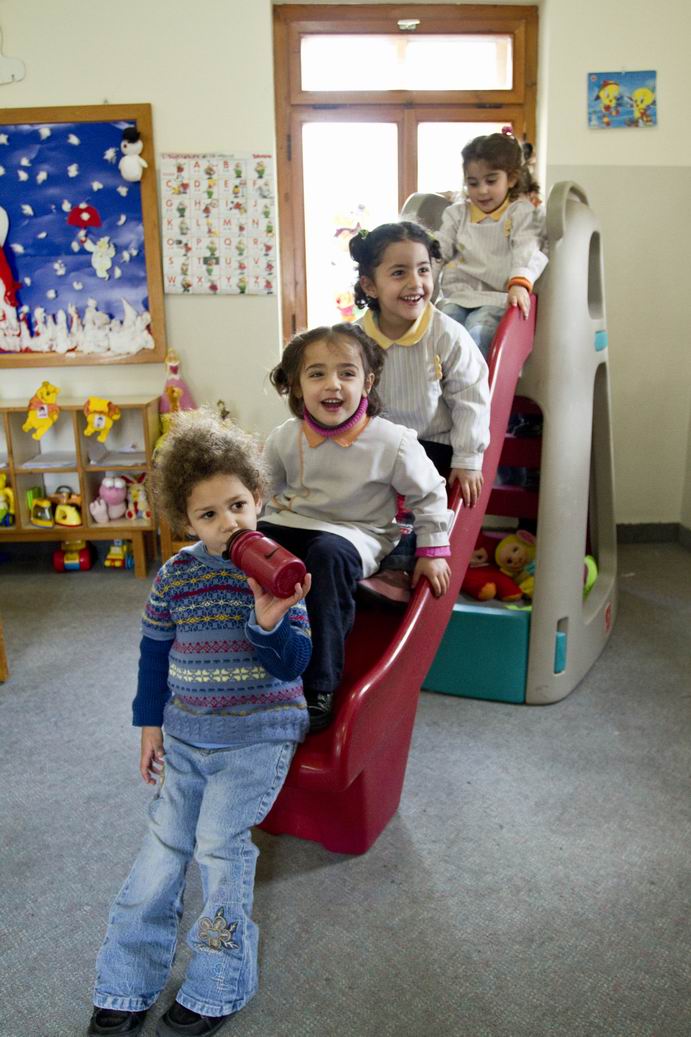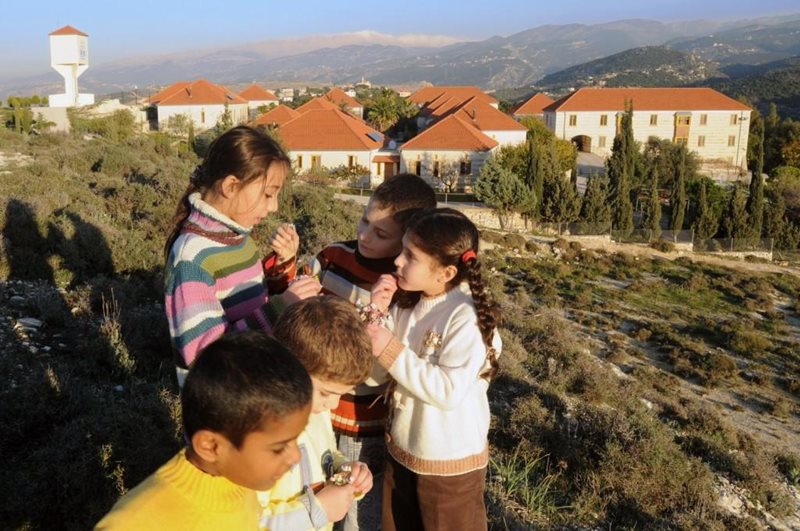One of the most deprived regions of Lebanon

In the past, Lebanon had a good standard of living. The recent difficult and unstable political situation in the region has led, amongst other things, to a decline in tourism and an overall stagnation of economic development. Living conditions have become increasingly precarious for many, and even those who live above the national poverty line are now in danger of falling into poverty.
The North Governorate of Lebanon (where Kfarhay is located) is one of the poorest and most deprived regions in the country. Over 420,000 people live in poverty, and access to good education and health care is severely lacking. In some areas of Tripoli, almost 70 per cent of residents are poor.
Violence in the neighbouring countries marks life in northern Lebanon
As the conflict in Syria has escalated, an increasing number of people have fled across the border, and into northern Lebanon. This region has one of the highest rates of refugees: one in three people have fled from conflict.
Most recently refugees have arrived from Syria, but prior to the war, there were already Palestinian and Iraqi displaced people living in northern Lebanon. They live in overcrowded camps where life is incredibly hard. An increasing number of refugees are now also living outside camps, in unsafe housing.
As men have arrived from abroad, there has been increased competition in the labour market. The fall in wages, and increase in unemployment and poverty, has affected both refugee and Lebanese communities alike.
For children growing up in Lebanon today, life is filled with insecurity and the threat of violence. Children are particularly at risk in the northern region – if families can't find work, children stop going to school and are sent to work. Adolescent girls are often married off at an early age, and desperate women turn to sex work to survive.
What we do in Kfarhay

Many of the children have had very traumatic experiences. We provide psychological care, and other therapies, as well as extra tuition for those struggling at school.
Education: The children attend kindergarten and schools together with children from the neighbourhood, ensuring that they make friends and are integrated into the local community from a young age.
Support for young adults: Young people, who are ready to move out of their SOS families, move into special accommodation. Girls and boys live in different houses and continue with their schooling or training. SOS Children's Villages gives them psychological and educational support and will help them look for work so that they can live independently.